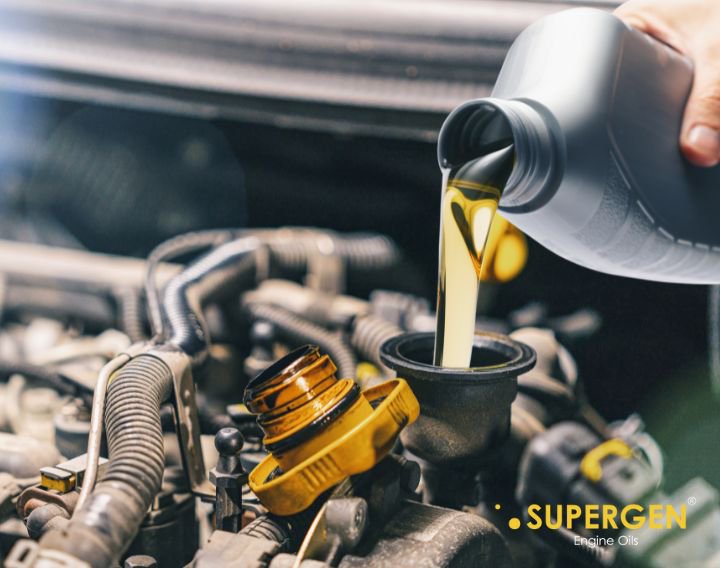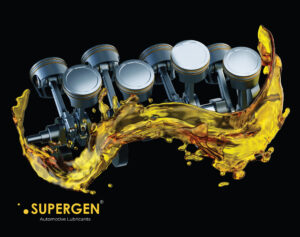Both 10W30 motor oil and 20W50 motor oil are good for daily driving mileage, increase engine lifespan, and considered to be preferred engine oils worldwide. However, they have some differences that derive their respective usage. This blog will give a brief idea about these distinguish qualities and the understanding of which oil to go for for your vehicle.
Before forging ahead to understand their individual attributes, one needs to know the meaning of numbers and etymology of these names.
What does 10W30 or 20W50 mean in engine oil?
The numbers 10, 30 and so on refer to the oil’s viscosity index. A lubricant’s viscosity index is related to the viscosity change rate due to a temperature change. Society of Automative Engineers i.e. SAE established this numerical code system for grading motor oils according to their respective viscosities. Multigrade oils were developed to provide protection in different temperatures because the viscosity of oil changes with change in temperature. That’s the reason why you come across a label like 10W30 or 20W30 etc.
The W’ stands for Winter. The numbers before the ‘W’ represent the oil’s winter-grade viscosity. The numbers after the ‘W’ convey the oil viscosity at high temperature settings. Higher the digits, better they perform at hot operating temperature. The lower this number is, the better you engine oil will perform in cold temperature environments.
Characteristics of 10W30 engine oil
10W30 can survive well in lowest temperature like -13°F and as high as 86°F. This makes 10W30 a stable engine oil to opt for in hot temperature and pressure. It can flow through the critical engine parts very easily without causing any friction.
This makes it highly recommendable for heavy-duty diesel engines since it is a slightly thicker oil and can withstand a heavy load. It protects the engine parts like pistons from engine deposits. Moreover, it averts the engine damage caused by friction and provides oxidation resistance. It gives a smoother and noiseless operation because of higher viscosity.
10W-30 engine oil is available in mineral form, synthetic form, as well as synthetic blend variants. Naturally, Synthetic motor oil has better protection against engine wear and tear. It also outperforms all other fluid variants of 10W-30 oil at normal operating temperature. 10W-30 motor oil gives a decent high-mileage and better fuel economy and for older engines.
Characteristics of 20W50 engine oil
20W50 maintains its liquid state at lower temperatures and is a good choice for use in automobiles driven in cold weather. Its oil density protects aged engine parts and helps avoid leakages that are frequent in older vehicles. It can be used for high-performance motorcycle bikes, and aviation vehicles as well.
20-50 oil has high viscosity and hence performs nicely in hotter climates, especially with older cars. However, It is crucial to remember that 20W-50 oil may be too thick for many current passenger vehicles, causing catastrophic engine damage.
20W50 vs 10W30
A 20W50 runs cooler than 10W30 engine oil. 20W50 is also better at blocking out heat, making it stronger at preventing engine failure. The 20W50 has a thicker consistency and flows more slowly than 10W30, while the 10W30 has a thinner consistency and flows faster than 20W50.
10w30 is a zinc-based, shear-stable, high-film-strength oil for tiny engines. Mechanical shear doesn’t thin it, resulting in a thick lubricant coating. Creating a long-lasting barrier against metallic contamination. 10W-30 Full Synthetic Motor Oil improves engine performance.
20W-50’s high viscosity is ideal for hot areas. Older autos need frequent maintenance so using a greater oil density like 20W50 can avoid leaks in older engines.
10w30’s synthetic base oils have high viscosity stability, oxidation resistance, and low volatility. Because it runs longer between top-offs, the engine won’t overheat and fail from lack of oil. 20w-50 performs well than petroleum oils. Diester synthetic’s additive package increases service life. Diester base, a natural detergent, helps add-on packages and prolongs base stock life.
However, Your car’s owner’s manual will tell you what your vehicle’s requirements are for each type of oil, so make sure to update its specifications so that it uses the correct oil for your specific model.
Effects of Using the Wrong Type of Engine Oil for your car
Different engine oils have different viscosities. Usually, low viscosity oils give better protection to engine parts at cold temperature and high viscosity oils are meant to maintain film strength to protect engines at high temperatures. For example, a 10w30 oil is designed to be used in engines that require lighter viscosity while a 20w50 oil is for engines that require heavier viscosity. Using the wrong type of engine oil can have serious consequences for your car. How?
- It can cause engine damage, reduce fuel efficiency, and increase unnecessary emissions.
- It will lead to poor performance of engine as it may not be able to lubricate your car’s parts properly. This can lead to increased wear and tear on your vehicle, resulting in costly repairs
- Additionally, using an incorrect type of oil may harm components like seals and gaskets which can further increase repair costs.
- Wrong engine oil application can also lead to overheating. Using a thicker oil as opposed to manual’s recommendation can result in less flow and the oil’s inability to balance temperature.
- An overly thick oil or highly viscous oil will need more energy to pump, resulting in increased fuel consumption. To overcome this high resistance on moving parts, your engine will burn more fuel.
One should always refer to the manual and manufacturer’s instructions regarding maintenance of your vehicle. It is recommended to choose the oil viscosity that goes with your automobiles as it is cost-effective plus serves better performance and maintains the lifespan of the engine.









